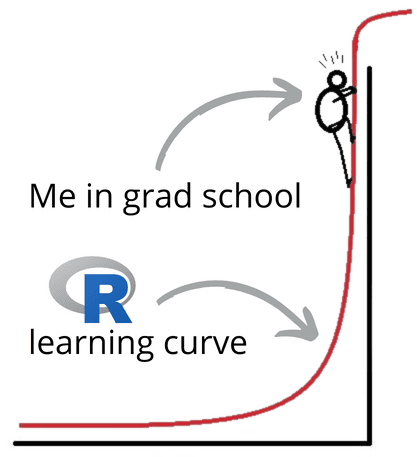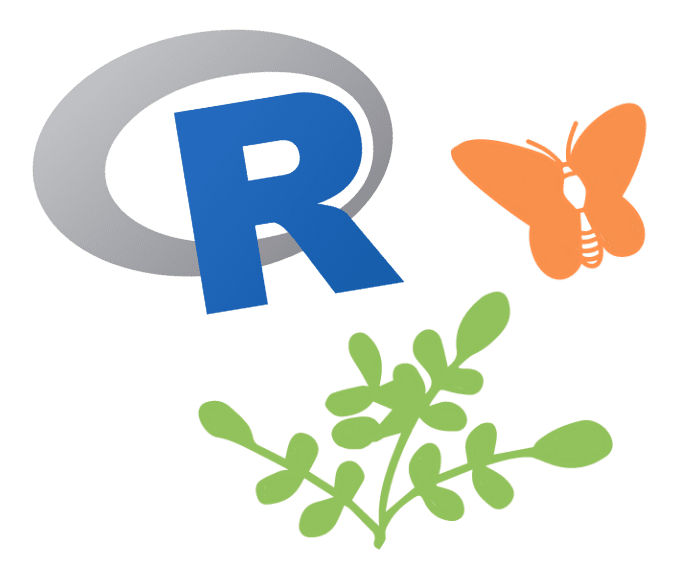Of course you don’t have a programming background…
Up until now you’ve probably been doing field work, exploring natural history, and loving the outdoors.
But still, there’s a mismatch in our industry, where your advisor or professors just expect you to know R.
As if it’s MS Word, or Excel, or some run of the mill program. 🤷
If you’re like most students, you feel so much pressure trying to instantly understand R, while staring up at the steep and dreaded learning curve to do so.
I totally get it. And I can help.
After struggling with it myself, I actually came to love R.
Yep, I did.
See, R translates numbers into meaning, and allows you to handle your own data.

... so you can freely and independently stake out on the cutting edge of any research you’re passionate about.
Plus, knowing R immediately sets you apart from other students, giving you added credibility getting into grad school, landing your first job, or taking on a whole host of exciting opportunities.
Ok but what about that steep learning curve?
Here’s the thing: R is only difficult to learn because most university courses teach waaay too much at once, and not in the right order. And then everyone feels lost.
It’s not the teacher’s fault. For many professors with tons of experience, it’s been a while since they were new with R. And they may have just forgotten how daunting it can be at the outset.
But as a recent PhD grad, I still feel that fresh pain from making tons and tons of mistakes, and trying to accept R.
So I created an online course, (the one I wish I had had as a student!) which teaches R for complete beginners (yep, lesson #1 covers how to install R and R studio).
The course is empathetic to where you are right now, and was created using “hacks” I learned along the way, to drastically speed up the learning curve, while helping students feel empowered.
You’ll see a lot of the 80:20 principle in action!
For example, I found that only 56 functions accounted for at least 80% of the code writing in R.
So you’ll start by gaining a really clear understanding of these essentials, before moving on to more complex processes. You’ll even receive a PDF “cheat sheet” of all the key functions to refer to in the future.
— I like that it starts from the ground up, so that no individual concept feels too complex, or out of reach. It helps get the learner over that wall of entry. I also like how the tools are introduced in a way that becomes applicable to personal data.
— Thorough explanations - the instructor never takes it for granted that we will know even the simplest steps, always explains in detail :)
— I started with no knowledge about R, and now I feel like an expert on it :-). thank you.



